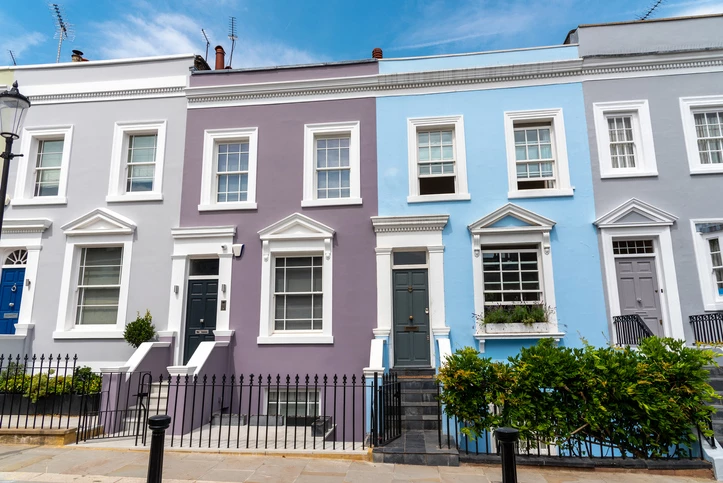17/06/2019 | Category: Commercial Insurance

On paper, a rental property might not appear the best investment. A crackdown on stamp duty on investment properties, an income tax raid on rent and a stall in house prices has made property investment a less attractive prospect than in previous years.
However, it remains a popular option among many investors. That’s because there’s also a plus side. Buy-to-let mortgage rates are pretty low right now and investing in property still offers significant long-term investment and growth potential. Plus, many people see bricks and mortar as a more secure way to grow their wealth compared to an investment fund.
Is rental property a good investment?
Demand for rental property remains high – especially amongst the young. And even though there has been a reduction in landlords’ rental income, there is still money to be made in buy-to-let properties.
Here are four benefits of becoming a property owner and entering the rental market.
1 Your property will appreciate in value
Investing in property is unique because you can make an investment without using all your own money – the rest you can borrow from a lender. Even if you invest using significantly more debt than equity, the value of the property increases based on the entire investment. Leveraging your money in this way can result in significant profit.
2 You will receive rental income each month
With tenants paying you a monthly rental income, any money left over after expenses is money in your pocket. The biggest expense on the rental property is likely to be your monthly mortgage repayment, but on top of that there are also maintenance and repair costs, agency fees, and landlord insurance to think about. It is important to consider these when working out your rental yield.
3 Tax deductible costs
A lot of new changes have taken place recently making tax for landlords more complicated than in previous years. However, there are still some costs you can deduct from your profits so you pay less tax. These are called allowable expenses and include letting agent fees, legal fees, landlord insurance, maintenance costs, and utility bills.
4 You’re your own boss
When you invest in a rental property, you’re the property owner and you make the decisions. You decide on the property to invest, which tenants to rent to, how much to charge in rent, and how to manage your rental property. By comparison, when you invest in a fund or stocks you can choose which one to invest in but you someone else is usually in control of managing and controlling your money.
What is a good rate of return on rental property?
Before you invest in a rental property, it’s important to work out how much profit you will make over a period of time. Regardless of whether this is your first or 21st rental property, calculating the rate of return is an important part of your decision-making process.
If you are going to grow your wealth through a rental property, you need the return on investment to be more than your monthly expenditure. If your income falls short, you’ll lose money. If you break even, you’re not making any money. And if you haven’t left room for contingencies (think broken boilers, leaky roofs and the like) then you might be facing a serious deficit.
It’s all about getting the right rental yield.
The simplest way to work out your rental yield is to take the yearly rental income and divide that by the purchase price and costs. You can then multiply that figure by 100 to get a percentage.
You want the rental yield on your buy-to-let property to be at least 8% – ideally more. Anything less might result in cash-flow issues.
A certain area might have great rental demand, capital growth or properties selling at under market value. But if the rental return is too low because you haven’t considered extra expenses such as landlord insurance, it will be a challenge to grow your wealth via your buy-to-let property.
A new generation of landlords
New research reveals that buy-to-let investors are getting older. According to a study by mortgage broker Commercial Trust Limited, the number of buy-to-let mortgage applications from 65 to 75-year-olds rose last year. Over-55s now account for nearly 40% of all buy-to-let purchase and remortgaging activity.
The combination of pension freedoms, a quiet property market, falling mortgage rates and a wider selection of buy-to-let options for older people, more of us are investing in rental properties in retirement.
Speaking about this, Andrew Turner, chief executive at Commercial Trust, said: “Investing in property has the potential to deliver attractive rental yields and achieve capital growth, despite industry changes. I fully expect that the returns fair better than many other forms of investment.”
What you need to know about becoming a buy-to-let landlord
There’s a lot to take in when you first become a landlord. You need to understand your legal responsibilities, set rent at a sensible amount, and make sure you are protected if things don’t quite go according to plan.
Here are three ways you can avoid any potential issues.
Get suitable landlord insurance
Being a landlord comes with its risks – everything from lost rental income to damage to your property. However, with the right insurance cover you will protected even if the worst happens. Landlord insurance can include buildings, malicious damage, accidental damage, owner’s liability and loss of rent.
Use a letting agency
Going through a letting agency will help you find the right tenants for your property and make sure you have a comprehensive tenancy agreement in place. This will reduce the risk of issues down the line.
Carry out regular inspections
Conduct regular inspections of the property – giving your tenants plenty of warning beforehand. This will help you identify any problems before they escalate and determine whether your tenants are treating the property as they should.
Is buy to let still worth it UK?
If you’re wondering whether buy-to-let is a good idea in 2019, as long as you do your research before buying the property and protect your property with quality landlord insurance, then the answer is yes.
Despite the various measures designed to curb the buy-to-let market and make it more expensive for investors to get started in the rental property market, it still offers a good way to grow your wealth and invest efficiently.
If you’d like to find out more about how to protect your rental property with landlord insurance, get in touch with the team at Insurance Choice today.
